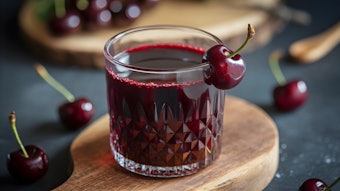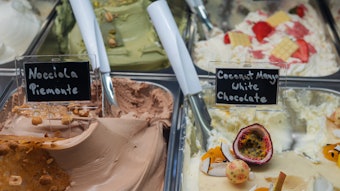Flavor capsule technology—in which a flavor capsule embedded in the cigarette's filter allows consumers to crush the bead and add flavor as they smoke—has been a tobacco industry success story, a recent report has revealed.
"Currently, every major tobacco multinational has hybrid capsule brand variants in its portfolio and new extensions continue to appear," says Shane MacGuill, tobacco analyst at Euromonitor International in a recent report.
Marked by an estimated shipment volume of over 30 billion sticks in 2011, current flavor capsule offerings revolve around menthol flavoring, a product segment which in its non-capsule form is growing in each of its major markets. While several so-called double-mentholated (menthol-to-menthol) capsule products exist, MacGuill says the dynamism in the segment, particularly in developed markets, is being seen in hybrid, that is, regular-to-menthol capsule cigarettes.
In addition, regulation permitting, the next generation of capsules is emerging for cloves. Kreteks, clove-flavored cigarettes, are indigenous to and dominate the substantial Indonesian market. However, as a material clove is unstable in price terms and adds extra complexity to manufacturers’ supply chains.
"As such, synthetic, clove-flavored capsules would allow tobacco companies to compensate for vagaries in clove sourcing and, offer a way to entice traditional kretek consumers into the more predictable (for multinational companies) white cigarette segment, migrating them into higher value international brands in the process," says MacGuill.
Conversely, clove flavor capsule filters would also potentially allow manufacturers to globalize the kretek phenomenon and add further value to developed cigarette markets, the analyst adds. Although regulation exists.
In 2009, the U.S. Food and Drug Administration (FDA), which regulates tobacco, introduced a flavor ban on candy and fruit-flavor cigarettes (including kreteks) in the U.S. The ban currently excludes menthol, which accounts for around 30% of total cigarettes sold in the U.S., making it by far the largest market for menthol cigarettes. In early in 2012, Brazil (sixth largest menthol market in the world) instituted a ban on cigarette flavoring which encompasses menthol.
Any expansion of the U.S. flavor ban to include menthol and/or the introduction of flavoring restrictions in other markets would have the effect of severely depressing growth in the capsule segment, MacGuill warns. For example, says the revised EU Tobacco Products Directive, which has recently been thrown into some disarray by the resignation of John Dalli from the Commission, is expected to incorporate a recommendation for a ban on menthol and other flavorings.
However, in a scenario which excludes menthol bans, MacGuill expects the capsule segment will flourish. All industry indications are that the triple-digit growth rates seen since the first appearance of capsule technology will have been maintained in 2012 as a plethora of new launches, critically, in further geographies and price bands, and increased consumer awareness, pile on additional volumes rather than cannibalize the sales of first movers, he adds.










